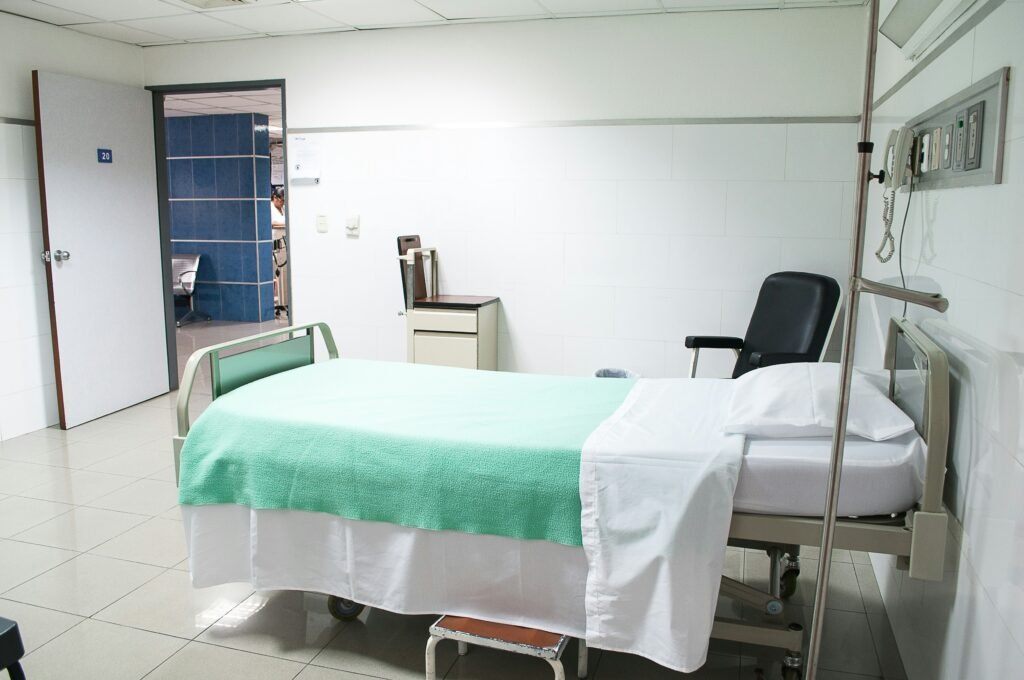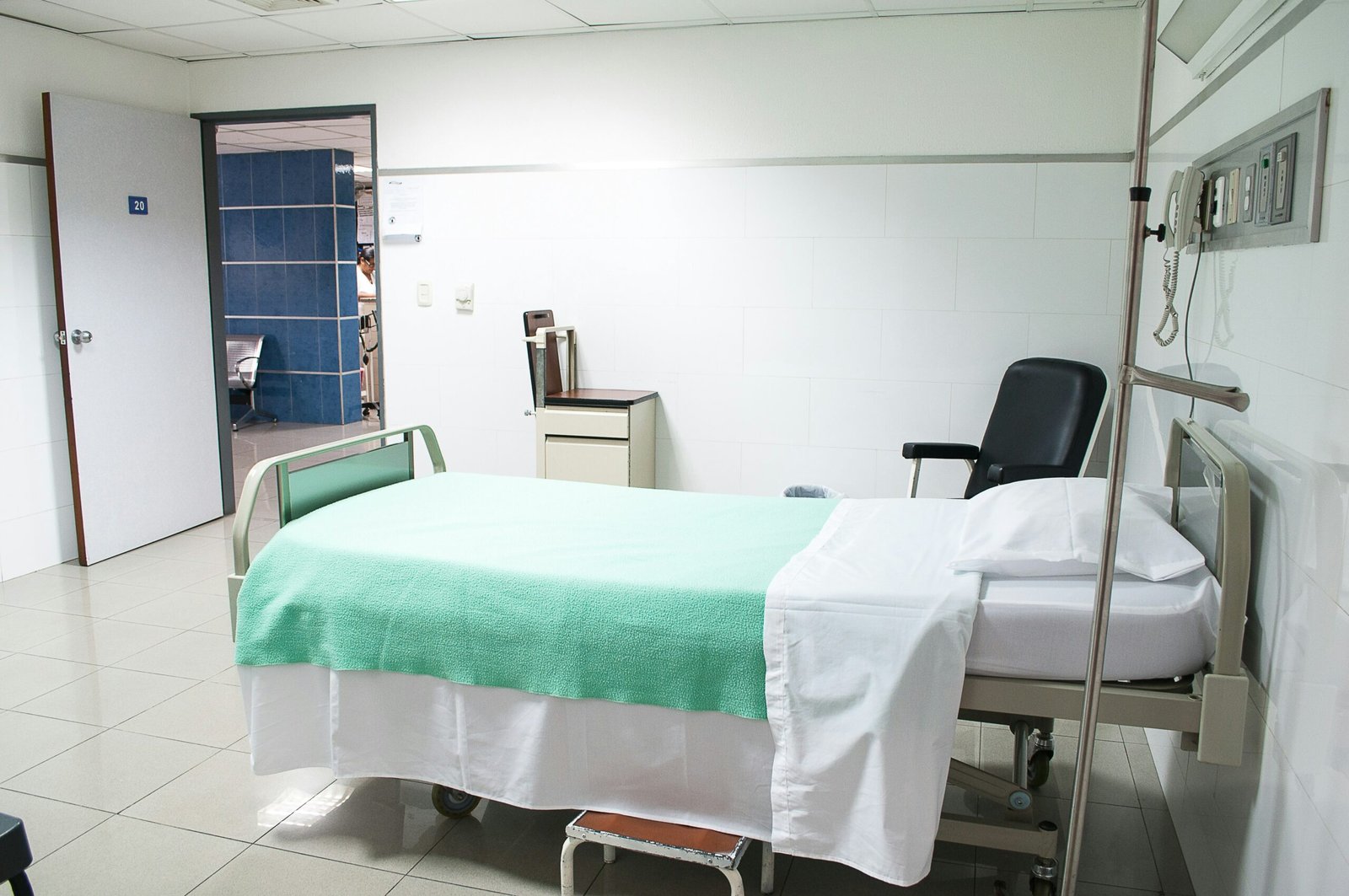Kidney stones can be incredibly painful and debilitating, but did you know that individuals with autoimmune conditions may be at a higher risk for developing these pesky stones? In this article, we will explore the link between autoimmune conditions and kidney stones, and discuss effective strategies for preventing complications. Whether you or a loved one are dealing with an autoimmune disorder or simply want to arm yourself with valuable knowledge, this article is a must-read. So, let’s dive into the world of kidney stones and autoimmune conditions, and learn how to keep complications at bay.
Risk Factors for Kidney Stones
Age
As you age, your risk of developing kidney stones increases. This is because as we get older, our bodies undergo natural changes that can affect the balance of minerals in the urine, making it easier for kidney stones to form.
Gender
Men are more prone to kidney stones than women. This may be due to differences in urinary tract anatomy and hormonal factors. However, women are not exempt from developing kidney stones, so it’s important to be aware of the risk factors and take preventive measures.
Family History
If you have a family history of kidney stones, your own risk of developing them is higher. Genetics can play a role in kidney stone formation, so it’s important to understand your family’s medical history and take steps to reduce your risk.
Dehydration
Dehydration can contribute to the formation of kidney stones. When you don’t drink enough fluids, your urine becomes concentrated, increasing the concentration of minerals and making it easier for kidney stones to form. Staying properly hydrated is key in preventing kidney stones.
Obesity
Obesity is a risk factor for kidney stones. The excess weight can lead to higher levels of substances that promote stone formation in the urine. Additionally, obesity is often associated with other conditions, such as diabetes and high blood pressure, which further increase the risk of kidney stones.
Certain Medical Conditions
Certain medical conditions can increase your risk of developing kidney stones. These include metabolic disorders like hyperparathyroidism or cystinuria, as well as urinary tract infections, kidney disease, and inflammatory bowel disease. It’s important to be aware of any underlying medical conditions you may have and work with your healthcare provider to manage them effectively.
Autoimmune Conditions and Kidney Stones
Link between Autoimmune Conditions and Kidney Stone Formation
There is a link between autoimmune conditions and an increased risk of kidney stone formation. Autoimmune conditions, such as lupus, rheumatoid arthritis, and Sjögren’s syndrome, can lead to changes in the immune system and inflammation within the body. These changes can affect the kidneys’ ability to regulate minerals and waste products, increasing the likelihood of kidney stone formation.
Common Autoimmune Conditions associated with Kidney Stones
Several autoimmune conditions are commonly associated with kidney stone formation. For example, individuals with lupus or Sjögren’s syndrome have an increased risk of developing calcium oxalate stones. Rheumatoid arthritis and systemic sclerosis have been found to be associated with an increased risk of uric acid stones. Understanding the specific autoimmune condition you may have can help you take targeted measures to prevent kidney stone complications.
Impact of Autoimmune Conditions on Kidney Stone Complications
Having an autoimmune condition can further complicate the management and treatment of kidney stones. The underlying inflammation and immune system dysfunction can impair kidney function and increase the risk of complications such as urinary tract infections, blockage of urine flow, and kidney damage. It is crucial to work closely with your healthcare provider to address both your autoimmune condition and kidney stone prevention strategies.

This image is property of images.unsplash.com.
Complications of Kidney Stones
Urinary Tract Infections
Kidney stones can increase the risk of urinary tract infections (UTIs). When stones block the flow of urine, bacteria may become trapped in the urinary tract, leading to infection. UTIs can be painful and uncomfortable, and timely treatment is important to prevent further complications.
Blockage of Urine Flow
Kidney stones can block the passage of urine from the kidneys to the bladder. When urine cannot flow freely, it can lead to severe pain, kidney damage, and infection. Prompt medical attention is essential to relieve the obstruction and prevent further complications.
Kidney Damage
In some cases, kidney stones can cause damage to the kidneys. This can occur if the stones are large or if there are complications such as infection or blockage. Kidney damage can have long-term effects on kidney function, so it is important to take preventive measures and seek appropriate care.
Recurrence of Kidney Stones
Once you have had a kidney stone, your risk of recurrence is increased. This is why it is important to implement preventive measures and make lifestyle changes to reduce your risk. By understanding the causes of kidney stone formation and addressing them, you can minimize the likelihood of future stones.
Preventing Kidney Stone Complications
Maintaining a Healthy Diet
A healthy diet is crucial in preventing kidney stone complications. It’s important to limit foods high in oxalates, such as spinach, rhubarb, and chocolate, as they can increase stone formation. Incorporating a variety of fruits and vegetables into your diet, choosing lean proteins, and avoiding excessive salt and sugar can help maintain a healthy balance and reduce the risk of kidney stones.
Staying Hydrated
Staying well-hydrated is one of the most important preventive measures for kidney stones. Adequate fluid intake helps dilute urine and prevent the concentration of minerals that can lead to stone formation. Aim to drink enough water throughout the day and adjust your fluid intake based on factors such as climate, physical activity, and medical conditions.
Managing Autoimmune Conditions
If you have an autoimmune condition, working closely with your healthcare provider to manage it effectively is crucial. This may involve taking prescribed medications to control inflammation and immune system activity. By effectively managing your autoimmune condition, you can reduce the risk of kidney stone complications.
Avoiding Triggers and Flare-Ups
For individuals with autoimmune conditions, it is important to identify personal triggers and implement strategies to minimize flare-ups. Stress management techniques, maintaining a healthy lifestyle, and finding balance in daily activities can all contribute to reducing inflammation and the risk of kidney stone formation.
Regular Follow-up with Healthcare Provider
Regular follow-up with your healthcare provider is essential in preventing kidney stone complications. They can monitor your condition, provide guidance on preventive measures, and help you make necessary adjustments to your treatment plan as needed. Open communication and collaboration with your healthcare provider are key in maintaining kidney health.

This image is property of images.unsplash.com.
Dietary Recommendations
Limiting Oxalate-rich Foods
Limiting the consumption of foods high in oxalates, such as spinach, beets, and nuts, can help reduce the risk of kidney stone formation. While you don’t need to completely eliminate oxalate-rich foods from your diet, it’s important to moderate your intake and balance it with other nutrient-rich options.
Increasing Fluid Intake
One of the most effective ways to prevent kidney stones is to increase your fluid intake. Water is the best choice, but other beverages like herbal tea and clear soups can also contribute to your daily fluid intake. Aim to drink enough fluids to produce at least 2 liters of urine per day, as this can help flush out minerals and prevent stone formation.
Moderating Sodium Consumption
High sodium intake can increase the amount of calcium in your urine, which can contribute to kidney stone formation. It’s important to moderate your sodium consumption by reducing the use of table salt, avoiding processed and packaged foods, and opting for fresh ingredients. Additionally, incorporating other flavorful herbs and spices can help reduce your reliance on salt for flavor.
Following a Balanced Diet
Following a balanced diet that includes a variety of foods from different food groups is essential for overall health and the prevention of kidney stones. Focus on incorporating fresh fruits and vegetables, whole grains, lean proteins, and healthy fats into your meals. A balanced diet provides essential nutrients and supports optimal kidney function.
Consulting a Registered Dietitian
If you are unsure about the best dietary approach to prevent kidney stones, consulting a registered dietitian can be beneficial. They can assess your specific needs and develop a personalized dietary plan that takes into account your individual risk factors, medical conditions, and dietary preferences. A dietitian can provide guidance and support in making sustainable lifestyle changes.
Hydration and Urine Production
Importance of Hydration for Kidney Health
Staying well-hydrated is crucial for maintaining kidney health. Hydration helps to ensure the proper function of the kidneys, including the removal of waste products and prevention of stone formation. It is important to make drinking enough fluids a priority in your daily routine.
Optimal Daily Fluid Intake
The optimal daily fluid intake varies depending on individual factors such as age, sex, activity level, and climate. As a general guideline, aim to drink at least 8 cups (64 ounces) of fluid per day. However, this may need to be adjusted based on your specific needs. Consulting with your healthcare provider can help determine the appropriate fluid intake for you.
Promoting Urine Production
To promote urine production and help prevent kidney stones, it’s important to maintain a consistent fluid intake throughout the day. Try to drink fluids regularly, rather than consuming large amounts at once. This can help ensure a steady flow of urine and reduce the concentration of minerals in the urinary tract.
Choosing Suitable Beverages
Water is the best choice to maintain hydration and promote urine production. If you find plain water boring, try infusing it with fruits or herbs for added flavor. Additionally, beverages like herbal teas, low-sugar juices, and clear soups can contribute to your daily fluid intake. However, it’s important to avoid excessive consumption of sugary drinks and caffeinated beverages, as they can have negative effects on kidney health.

This image is property of images.unsplash.com.
Managing Autoimmune Conditions
Working Closely with Healthcare Provider
When you have an autoimmune condition, it’s important to establish a close working relationship with your healthcare provider. They can provide guidance on managing your condition, monitor your kidney health, and help you navigate any challenges that may arise. Regular check-ups and open communication are key in effectively managing autoimmune conditions and reducing the risk of kidney stone complications.
Taking Prescribed Medications
If you have been prescribed medications for your autoimmune condition, it is important to take them as directed by your healthcare provider. These medications help to control inflammation and immune system activity, which can have a positive impact on kidney health. Adhering to your prescribed medication regimen is essential in managing your autoimmune condition and reducing the risk of complications.
Managing Inflammation
Inflammation is a key feature of autoimmune conditions, and it can also contribute to kidney stone formation. Implementing strategies to manage inflammation, such as regular exercise, stress management techniques, and getting adequate rest, can help reduce the risk of kidney stone formation. It is important to develop a comprehensive approach to managing inflammation in order to protect the health of your kidneys.
Exploring Complementary Therapies
In addition to conventional treatments, there are complementary therapies that may help manage autoimmune conditions and reduce the risk of kidney stone complications. Examples include acupuncture, herbal remedies, and mind-body practices like yoga or meditation. It’s important to discuss these options with your healthcare provider to ensure they are safe and appropriate for your specific condition.
Regular Check-ups and Lab Tests
Regular check-ups and lab tests are important for individuals with autoimmune conditions. These appointments allow your healthcare provider to monitor your condition, assess kidney function, and make any necessary adjustments to your treatment plan. By staying proactive and attending regular appointments, you can stay on top of your health and address any concerns before they escalate.
Recognizing Triggers and Flare-Ups
Identifying Personal Triggers
Being aware of your personal triggers can help you minimize episodes of inflammation and kidney stone formation. Keep track of any patterns or specific factors that seem to worsen your symptoms or increase your risk of stone formation. This can help you make lifestyle adjustments and avoid potential triggers.
Implementing Stress Management Techniques
Stress can have a negative impact on autoimmune conditions and increase the risk of kidney stone complications. Implementing stress management techniques, such as deep breathing exercises, meditation, or engaging in enjoyable hobbies, can help reduce stress levels and promote overall well-being. Finding healthy ways to cope with stress can have a positive impact on kidney health.
Maintaining a Healthy Lifestyle
Maintaining a healthy lifestyle is essential for individuals with autoimmune conditions and those at risk of kidney stones. This includes regular exercise, healthy eating, adequate sleep, and stress management. By prioritizing your overall health and well-being, you can reduce the likelihood of kidney stone complications.
Finding Balance in Daily Activities
Finding balance in your daily activities is key in managing autoimmune conditions and preventing kidney stone complications. Avoiding excessive physical exertion, taking regular breaks, and practicing good self-care can help prevent flare-ups and reduce the strain on your body. Listening to your body’s signals and adjusting your activities accordingly is important in maintaining your health.
Patient Education and Empowerment
Understanding the Connection between Autoimmune Conditions and Kidney Stones
Understanding the connection between autoimmune conditions and kidney stones is empowering. By being aware of the relationship, you can take proactive steps to reduce your risk and prevent complications. Educate yourself about the underlying mechanisms, risk factors, and preventive measures to empower yourself in managing your health.
Recognizing Symptoms and Seeking Prompt Medical Attention
Recognizing the symptoms of kidney stones and seeking prompt medical attention is crucial in preventing complications. Symptoms may include severe pain, blood in the urine, frequent urination, and cloudy or foul-smelling urine. If you experience any of these symptoms, it’s important to seek medical attention to receive appropriate treatment and prevent further complications.
Adhering to Treatment Plans
Adhering to your treatment plan is essential in managing both autoimmune conditions and kidney stones. This may include taking prescribed medications, following dietary recommendations, attending regular check-ups, and implementing lifestyle changes. By consistently adhering to your treatment plan, you can effectively manage your condition and reduce the risk of complications.
Advocating for Comprehensive Healthcare
As a patient, advocating for comprehensive healthcare is important. This includes active participation in your treatment plan, asking questions, and seeking second opinions when necessary. By actively advocating for yourself, you can ensure that your healthcare needs are being met and receive the best possible care for both your autoimmune condition and kidney stone prevention.
Conclusion
Emphasizing the Importance of Preventative Measures
Preventing kidney stone complications is crucial for individuals with autoimmune conditions. By understanding the risk factors, implementing preventive measures, and working closely with healthcare providers, you can reduce the risk of kidney stones and their associated complications. Taking action to prevent kidney stones is an investment in your long-term health.
Encouraging Open Communication with Healthcare Providers
Open communication with your healthcare providers is key in managing autoimmune conditions and preventing kidney stone complications. Regular check-ups, sharing concerns and symptoms, and actively participating in your treatment plan are all vital. Establishing a collaborative relationship with your healthcare providers can lead to better outcomes and improved quality of life.
Promoting Self-Care and Self-Advocacy
Taking care of yourself and advocating for your health is essential in preventing kidney stone complications. This includes following a healthy diet, staying hydrated, managing stress, and adhering to your treatment plan. By putting yourself first and actively participating in your healthcare, you can take control of your well-being and minimize the impact of kidney stones on your life.

